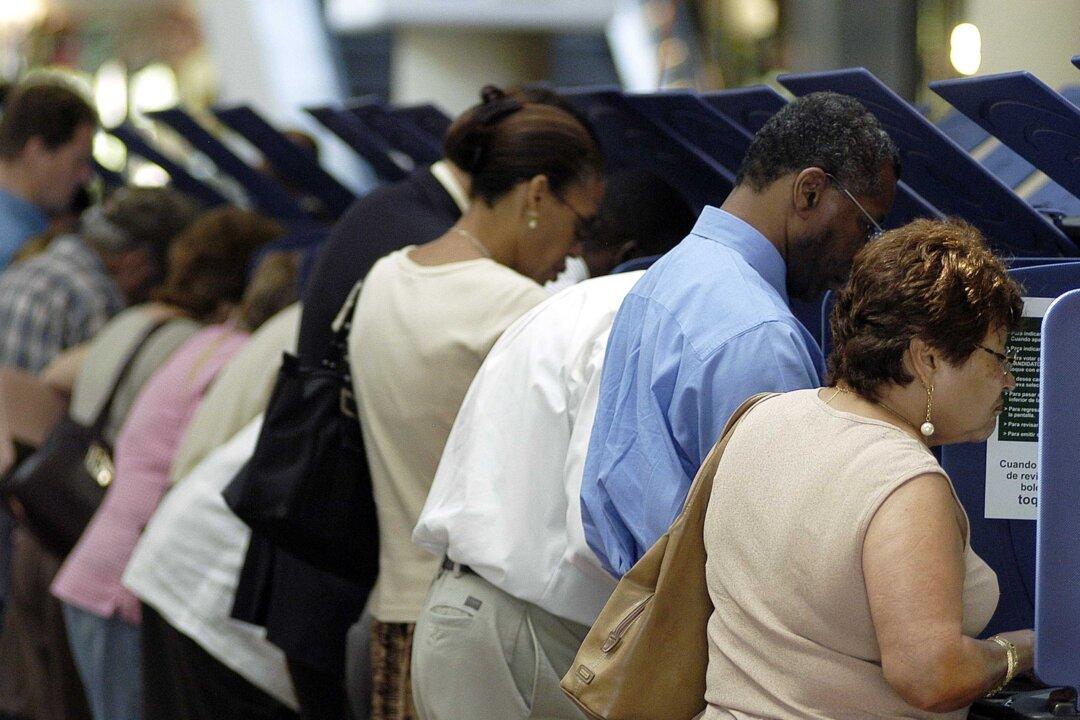Commentary
My father once told me about a time when, as a boy, he found his mother crying in the living room. The television was on, and she had just learned that President John F. Kennedy had been killed.
His death was a devastating blow to a community that had turned out in massive numbers to see him elected. Nevertheless, his political legacy, as well as the goodwill fostered by his brother Bobby, has helped to keep Mexican Americans in the Democratic fold for decades.
Since then the party has been held together by a coalition of minorities, union members, and white progressives. Even as the party lost white working-class voters, it largely retained conservative-leaning Mexican Americans by adhering to a political framework centered on multiculturalism. This arrangement allowed for exemptions from ever-changing liberal social norms that are common in academia but less so among working-class minority communities.
Enter the Woke Era.
Recently, the party’s multicultural framework has been replaced by intersectionality, which seeks to align ideas of race, gender, and class among disparate communities into a single “woke” worldview. To be clear, this is done with good intentions, but to many a Mexican American it rings of forced assimilation.
Whereas in previous years Mexicans were told not to speak Spanish by white conservatives, we’re now told by progressives that our ancestral language is rooted in bigotry. The word “Latinx,” a new gender-neutral term to describe Latinos, is trending in activist circles even as most Mexicans reject it. And while liberal elites tussle over identity politics, the financial anxieties of working families simmer on the backburner.
There’s also something bubbling under the surface that I’ve yet to see reported. In the woke Latinx sections of social media, there’s now a level of Hispanophobia and anti-Mexican sentiment that rivals or surpasses anything I’ve witnessed in recent years, even under this presidency.
Mexican Americans are derided as xenophobic by non-Mexican Latinos out of their resentment for Mexico’s immigration policies, despite the fact that millions of us have family histories in the United States spanning several generations. Our forebears that established communities in places such as Los Angeles, Albuquerque, and El Paso are dismissed as colonizers, even though the vast majority of us also have indigenous ancestry.
Traditional Hispanic values are also on the chopping block. Among an increasingly secular Democratic base, many Catholic Hispanics feel out of place. Whereas the image of the Mexican American male breadwinner was once leveraged to woo conservative Republicans to the negotiating table on immigration, Hispanic men are all too often now simply viewed through the lens of “tyrannical patriarchy” by far-left activists. And because of its gendered nature, the Spanish language is considered to be the source of some of our perceived social ills.
Given these circumstances, it’s no wonder Democratic officials were quiet after statues of Saint Junipero Serra and Miguel de Cervantes were vandalized by left-wing radicals last month.
We’re not the caricature that the left has created. Most Mexican Americans are hardworking and honest. Like anyone else, we’re just trying to get by in this economy.
I’d like to stress that these sentiments are only surfacing on the fringes of the progressive world. The real problem is that the center of the party is not taking action to rein in the toxicity.
All this means is that a larger portion of the Mexican American vote is now up for grabs. A recent Marist Poll conducted in late June found that 39 percent of Hispanics said they would vote for President Trump, signaling a level of support for a Republican presidential candidate that hasn’t been seen since President George W. Bush’s reelection in 2004.
Even if there isn’t a political exodus this year, I believe that if these trends continue on the left many Mexican Americans may decide to stay home and re-examine their party affiliation.
Eli Magaña is a public relations strategist who recently served as the Nevada communications director for the Tom Steyer 2020 presidential campaign. Follow him on Twitter: @EliMaganaNV
